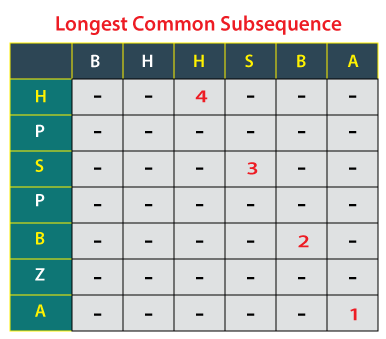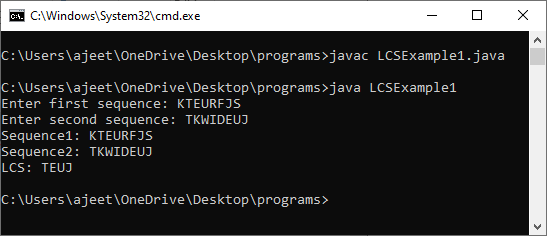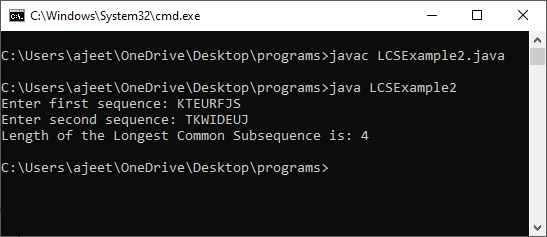Longest Common Subsequence in JavaThe longest subsequence common to all the given sequences is referred to as Longest Common Subsequence. The reason for using the LCS is to restrict the element of the subsequences from occupying the consecutive position within the original sequences. A sequence that appears in the same relative order, either contiguous or non-contiguous way is known as a subsequence. For example, if we have two sequences, such as "KTEURFJS" and "TKWIDEUJ", the longest common subsequence will be "TEUJ" of length 4. In Java, there are two ways to implement the LSC program, i.e., using the recursive method and using dynamic programming. Both the ways have a different implementation. 
Using Dynamic ProgrammingThis approach is a tabulated implementation for the Longest Common Subsequence. In order to find the Longest Common Subsequence, we use the following steps:
Let's implement the code of the Longest Common Subsequence using dynamic programming by following the above steps. LCSExample1.java Output 
Using Recursive ImplementationLet's understand another example of LCS that uses recursive implementation. In this example, we take two sequences from the user and return or print the length of the Longest Common Subsequence. LCSExample2.java Output 
Next TopicTravelling Salesman Problem in Java
|
 For Videos Join Our Youtube Channel: Join Now
For Videos Join Our Youtube Channel: Join Now
Feedback
- Send your Feedback to [email protected]
Help Others, Please Share









